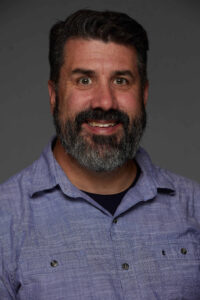I was, in every sense of the word, a “rookie” editor on Tuesday, September 11, 2001. My first deadline as the editor of the West Fargo Pioneer weekly paper.
I had served as sports editor and associate editor in my years up to that date. The only job I had ever known in journalism, I wrote about anything and everything at that point. That morning, 22 years ago, we were focused on the new schools in West Fargo, unprecedented growth on the south side, the upcoming harvest and school and city issues.
So little was known that Tuesday morning that my write up about the attacks on the World Trade Center and the Pentagon, as well as the demise of United 93 in a field in Pennsylvania, contained the minimum of information. It ran on Page 2.
We can wax nostalgic, if we want, about our country’s response to that horrific day. How we encouraged everyone to stand United. How we discouraged – and rightfully so – attacks on peaceful people of Islamic faith who lived within our borders long before 9/11. How we rallied around New York, D.C., our President, and our troops. How we trusted our media sources – particularly the leads of nightly news shows – as they spelled out how 9/11 happened, who Osama bin Laden was, and what we could do to defend our country and move forward with retribution.
The overall message? We would heal from our wounds. We would stand with resolve. We would not only recover – we would come back better.
And we did. For a while.
But wounds from 9/11, unfortunately, didn’t completely heal. And now, those wounds are infected.
 The scrapes and scars from massive buildings suddenly crumbling to the Earth fueled our distrust in everything. Everywhere. The government’s mishandling of things prior to and after the tragedy quickly eroded our resolve, and we could only watch as wars and conflicts we questioned were unfolding thousands of miles away.
The scrapes and scars from massive buildings suddenly crumbling to the Earth fueled our distrust in everything. Everywhere. The government’s mishandling of things prior to and after the tragedy quickly eroded our resolve, and we could only watch as wars and conflicts we questioned were unfolding thousands of miles away.
Support our troops? Absolutely. Question the mission – we did. And, as it would turn out – we should have.
Now, the wounds that are infected are eating us from within. The distrust in government and each other has led to division that doesn’t allow for compromise or cooperation in a country that literally depends on those two things for success. Even in our darkest hours – Civil War, Global Conflict – and the threat of mass annihilation – there was dialogue. Now, we’re so entrenched in our encampments and locked into our silos that the only people we will even consider procreating with must have voted like us in the last election. Or they need to be “over 6 feet tall.”
There is no unity. Those that would profit from division have used tools like the media and politics – even our schools and our churches – to keep us in all ways divided. A country that used to celebrate culture and creeds of all people now questions anything that looks “different” as “un-American,” even though the roots of America are as a refuge from such homogenization.
A Constitution that was explicitly designed to ensure we could say (mostly) what we want, worship what we want, do what we want – has been twisted so it serves “some,” but not all. At least that’s what the people who want to keep you divided will say.
Did you just stop and say “well that’s them. Not me.”?
Therein lies the problem.
We – United – have the power to heal these infected wounds, which have lingered now for two decades. By not buying it. Tuning out the divisive rhetoric that doesn’t look to solve problems, but continually blames someone else for creating them. Refusing to elect people with agendas for themselves for people who think like them – and instead looking out for the betterment of an entire population. Stop feeding the narrative that there are “those people and these people.”
We did that. Once. In the face of our biggest threat.
We can do it again.
But it starts with us. Not them. And it needs to start soon.